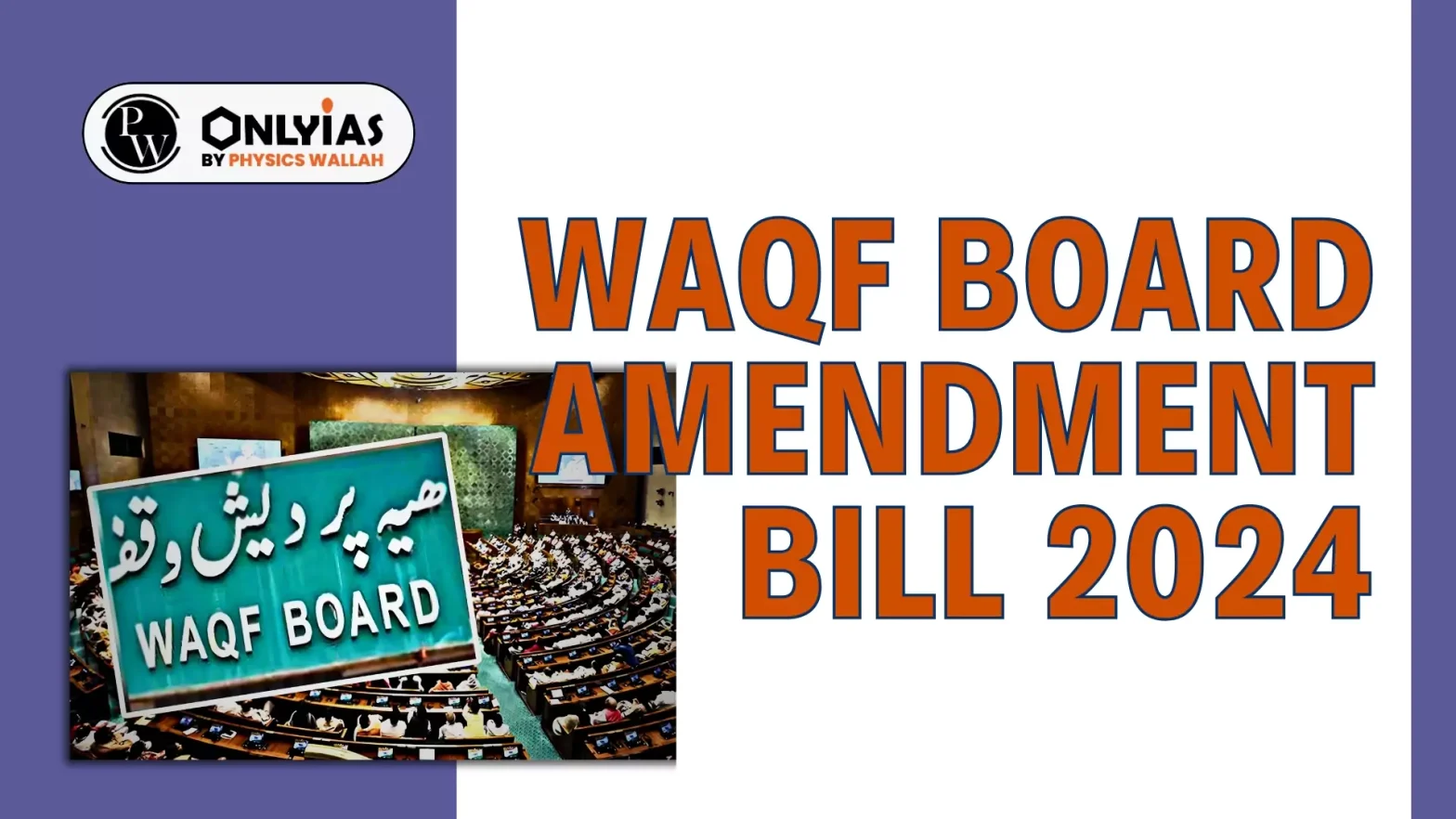Waqf Board Amendment Bill 2024 was referred to a Joint Parliamentary Committee after opposition parties criticized it. Understand what is Waqf Board Amendment Bill and why it is proposed.

The Waqf Board Amendment Bill 2024 was proposed by the Waqf (Amendment) Bill, 2024, in Lok Sabha. In monsoon session of Parliament, Union Minority Affairs Minister Kiren Rijiju introduced the Waqf (Amendment) Bill, 2024 in the Lok Sabha. The bill proposes about 40 amendments to the existing Waqf Act, 1995, which was last amended in 2013.
After a heated debate, the house referred the bill to a Joint Parliamentary Committee for further scrutiny, to which the Minister agreed.
The Waqf (Amendment) Bill has been a subject of significant discussion in the ongoing Parliamentary session. The Joint Parliamentary Committee (JPC) has completed its review and submitted its final report, which includes multiple proposed amendments. The bill, which seeks to amend the Waqf Act of 1995, aims to introduce greater transparency, accountability, and regulatory changes in the management of Waqf properties across India.
This legislation remains one of the most closely watched in the ongoing Parliamentary session, as it could have long-term implications on religious property management, legal governance, and socio-political dynamics in the country.
The Waqf Bill has been referred to a Joint Parliamentary Committee after opposition parties criticized it, calling the bill “draconian” and an attack on the Constitution. The bill proposes changes to the management and administration of Waqf properties, sparking concerns over potential government overreach and infringement on minority rights. The opposition argues that the bill undermines the autonomy of Waqf boards and violates constitutional protections for religious minorities. The government, however, claims that the bill aims to ensure better management and transparency.
Reported Features of Amendment Bill:
The Waqf Board Amendment Bill 2024 proposes changes to the Waqf Act of 1995. The bill aims to address existing issues in the management and administration of Waqf properties, ensuring better transparency and efficiency. The amendments seek to improve the legal framework governing Waqf boards and their operations across India.
Key Amendments in the Waqf Act Amendment Bill are designed to address long-standing issues related to the management of Waqf properties and to align with practices in other Islamic nations where such extensive powers are not vested in a single entity. The Waqf Board Amendment Bill 2024 introduces several key changes:
The Waqf Board Act, initially enacted in 1995, is a legal framework governing the administration of Waqf properties in India. Waqf refers to the endowment of property for religious or charitable purposes, and the act outlines the structure, functions, and powers of Waqf boards responsible for managing these properties.
The Waqf Board Amendment Bill 2024 will bring a lot of changes that are aiming to improve Governance in India and enhance transparency. By addressing key issues in the existing Waqf Act of 1995, the bill seeks to bring about significant administrative reforms and ensure more inclusive and efficient management of Waqf assets. Here are some implications of the Waqf Board Amendment Bill 2024:
1. Enhanced Transparency
The bill includes provisions to digitize records and create a centralized database. This will make it easier to track and manage Waqf properties, reducing the potential for fraud and mismanagement.
2. Improved Governance
Administrative reforms proposed in the bill by the government will lead to more professional and efficient management of Waqf properties. This could result in better utilization of these resources for charitable and religious purposes.
3. Protection of Waqf Properties
The bill aims to protect Waqf properties by regulating leasing and preventing encroachments. Unauthorized use and exploitation of these properties will be prevented, ensuring they are used for their intended religious and charitable purposes.
4. Inclusion and Representation
Including Muslim women and non-Muslims in Waqf Boards is a step toward more inclusive governance, ensuring diverse perspectives in decision-making.
5. Efficient Dispute Resolution
The new dispute resolution mechanism will help in resolving conflicts related to Waqf properties more effectively, reducing the burden on regular courts and ensuring quicker justice.
To Boost your UPSC preparation with expert guidance and the best resources, enroll yourself in PW Online UPSC courses!
| UPSC Mains 2024 Related Articles | |
| UPSC CSE Mains 2024 | UPSC Mains Exam Pattern 2024 |
| UPSC Mains Syllabus 2024 | UPSC Mains Previous Year Papers |
| UPSC Mains Admit Card 2024 | UPSC Mains Previous Year Cutoff |
The objective is to enhance the management and transparency of Waqf properties and strengthen the governance of Waqf boards.
The bill mandates the digitization of Waqf records, making information easily accessible and transparent.
Key changes include enhanced transparency, restructured Waqf boards, clear definitions of Waqf properties, an improved dispute resolution mechanism, and increased regulatory oversight.
The Waqf Board Act of 1995 is a legal framework for the administration and management of Waqf properties in India, establishing Waqf boards for this purpose.
The bill is significant as it aims to resolve longstanding management issues, ensuring that Waqf properties are effectively utilized for religious and charitable purposes.
<div class="new-fform">
</div>